NSW bushfires: Help pours in for devastated native Australian animals
Some weigh less than a can of soft drink but these little joeys are carrying the hope of the nation’s decimated wildlife populations.
NSW
Don't miss out on the headlines from NSW. Followed categories will be added to My News.
Some weigh less than a can of soft drink but these little guys are carrying the hope of the nation’s decimated wildlife populations.
A newborn wombat and a joey named April have taken refuge at a virtual Noah’s ark, which is at the forefront of the fight to rebuild several species after they were obliterated by bushfires.
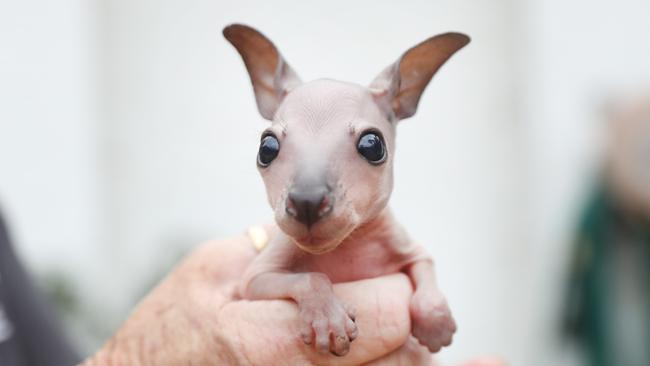
April was retrieved from the pouch of her mother, who was run over while fleeing the bushfires.
She is now among thousands of native animals being cared for by the state’s volunteer wildlife rescue operation, WIRES.
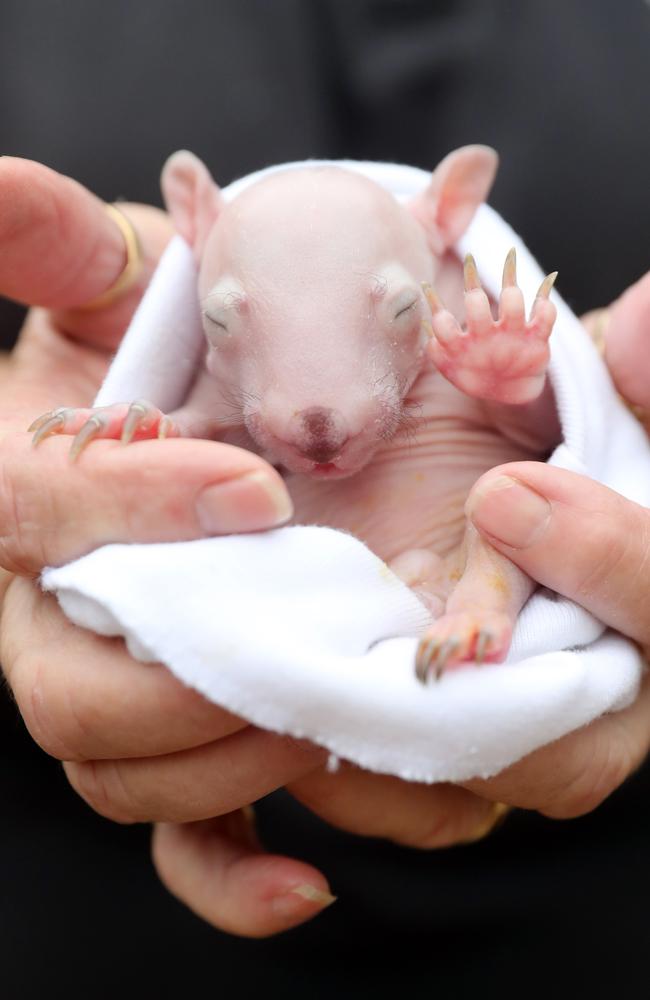
Volunteer Noeline Bondfield, 70, said millions of koalas, kangaroos, possums and other animals perished in the fires.
“The babies in care that have been able to survive, they may be the only ones that are left in this area because of the horrendous numbers that were burnt and died in the fires,” Ms Bondfield said on Wednesday.
WIRES volunteers such as Ms Bondfield have been moved to tears by the generosity of people from all over the world who have been donating about $1 million a day to the organisation since the beginning of the year.
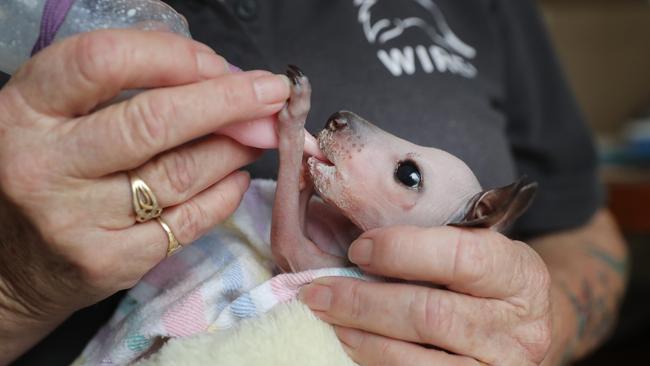
Many have been moved by the fact that the native animals exist nowhere else in the world. “It’s going to mean everything to WIRES, more importantly it’s going to mean everything to our native animals,” spokesman John Grant said.
“This is unprecedented, this is uncharted territory.
“The young animals we have in care now are going to be needed more than ever to rebuild the wildlife populations that have been lost to these terrible fires.”
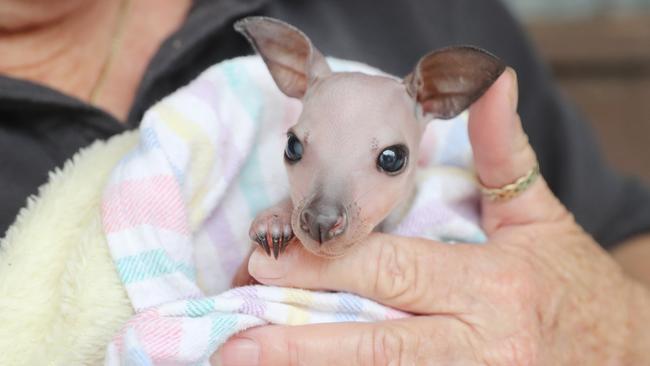
To put the extraordinary amount of donations into perspective, during the last bushfire crisis in 2013, WIRES received a total of $200,000 in donations.
While vets give the rescued animals free check-ups, the organisation has to pay for medical supplies, medications, special food, rescue equipment and enclosures.
They also cover the costs of recruiting and training more volunteers to increase the capacity of the organisation.
Baby April, a swamp wallaby, has increased in weight from 350g to 480g since she was brought in by a motorist in the Southern Highlands.
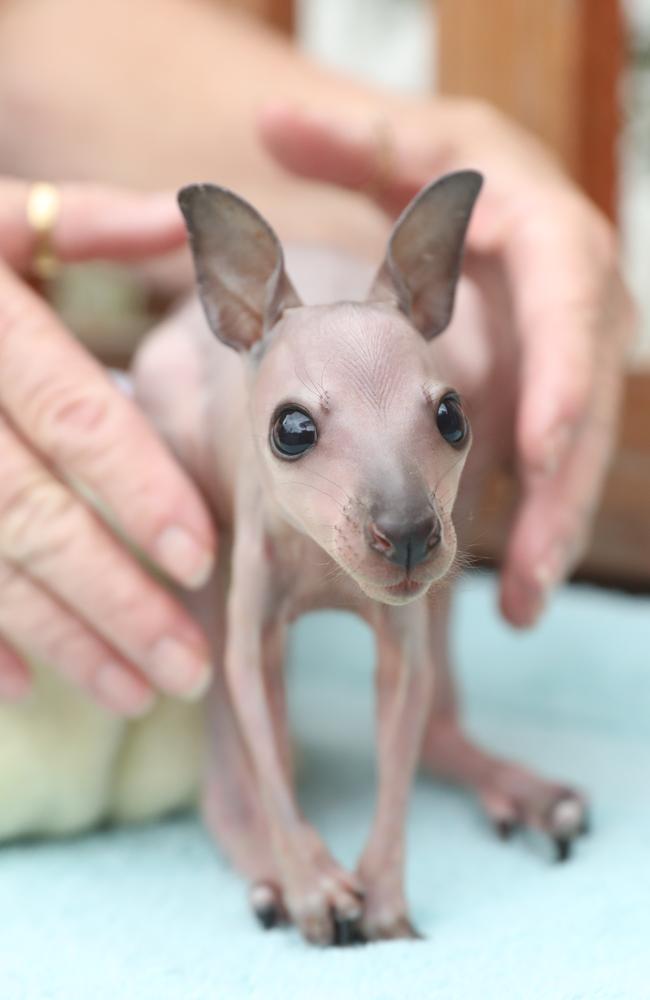
Her home is a cotton pouch inside a woollen pouch inside a haversack hung inside a cot.
“Such young babies normally like to just burrow down and hide in their pouch but madam here likes to look around,” Ms Bondfield said.
